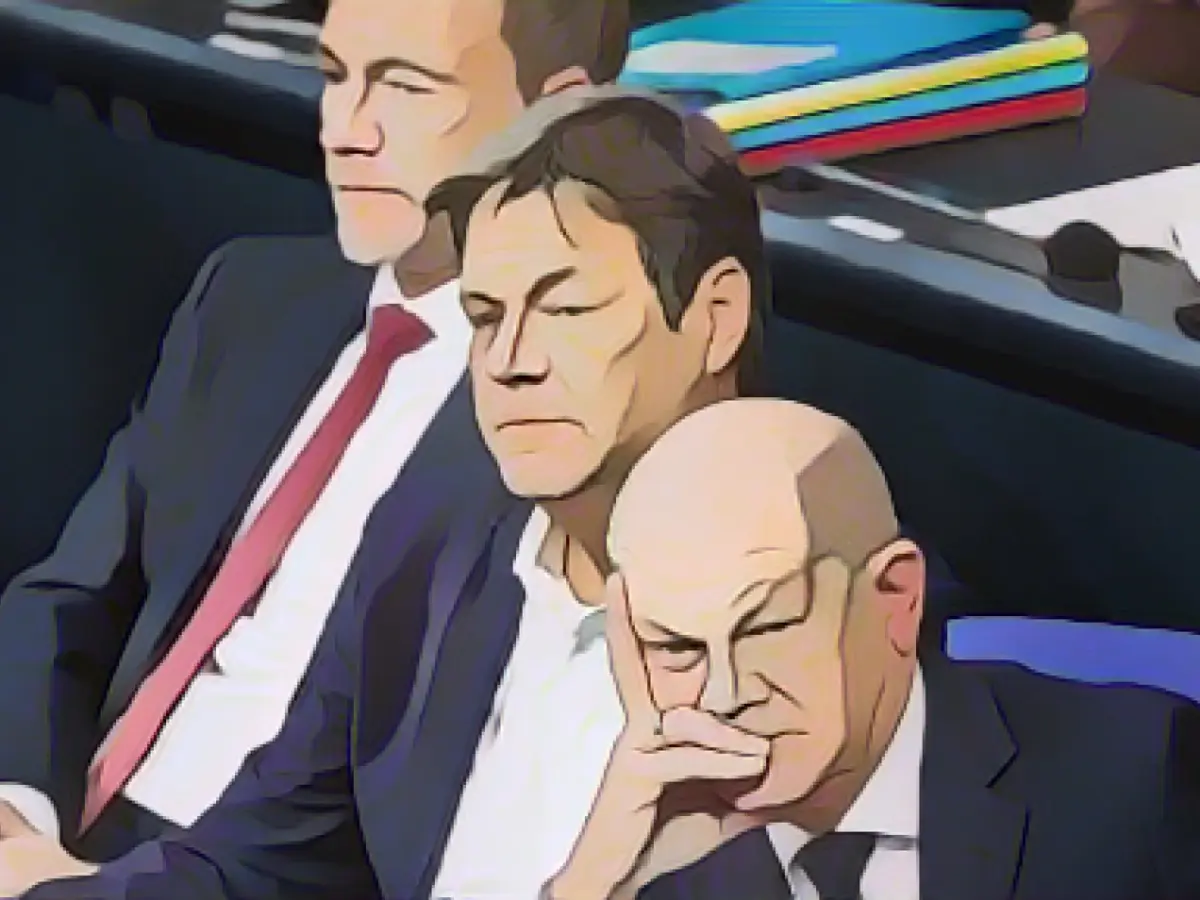Budget Strife Reignites as Coalition Partners Feud
For the newly-formed coalition of SPD, Greens, and FDP in Germany, a week is not enough to settle disagreements over the budget agreement. Government spokesman Steffen Hebestreit knew the situation was tenser than ever when he tried to calm the turmoil in Berlin and stated that discussions were ongoing to clarify certain points with the Ministry of Finance.
Despite this, Hebestreit indicated that the essentials remained intact. He maintained that critics would assess reservations while the group stood firm in implementing the accord to be put forth on Wednesday.
Last week, Olaf Scholz (SPD), Robert Habeck (Greens), and Christian Lindner (FDP) came to a consensus on how to plug funds into the federal budget for 2024 and the climate and transformation fund.
Habeck had warned against disregarding the compromise, cautioning that neglecting the 'struts' in the framework would result in the overall structure collapsing if minor components weren’t replaced with viable counter-solutions.
Now, the 'struts' are being scrutinized more than ever. Dirk Wiese, the second-in-command of the SPD parliamentary group, has called for a renegotiation of the budget compromise. His emphasis lies mainly on the sudden termination of the e-car purchase incentives and tax relief for agricultural diesel.
Wisely noting, "We are in charge of drawing up the budget," Wiese assured the Bundestag would address all proposals until the final 2024 federal budget settlement happened at the conclusion of January.
Turning to the controversy surrounding agricultural diesel, Agriculture Minister Cem Özdemir (Greens) and the FDP parliamentary group voiced their concerns. Özdemir raised alarms over potential disadvantages to German farmers in international competition due to the proposed policy, adding that farmers have no alternative solutions to the use of agricultural diesel for heavy machinery.
The FDP parliamentary group leader, Christian Dürr, boldly vowed a veto against the abolition of tax reductions. He emphasized the unacceptable burden on agricultural businesses. Financing Minister Lindner supported alternatives and suggested that CDU leader Friedrich Merz might plan to increase taxes if the proposed changes failed to materialize.
Concurrently, SPD leader Lars Klingbeil proposed an extension of the commuter allowance as a probable relief measure to the pressing concerns of the labor force. Klingbeil acknowledged the financial burdens presented in the traffic light coalition's budget agreement, which he found unfavorable.
The abrupt conclusion of state funding for electric car purchases announced by the Federal Ministry of Economics further clashed with the general consensus. After the announcement, individuals who had not yet submitted their applications were left at a loss. Johann Schneider-Ammann, former president of the Swiss Confederation, criticized the move, stating, "It is not done just to save money."








